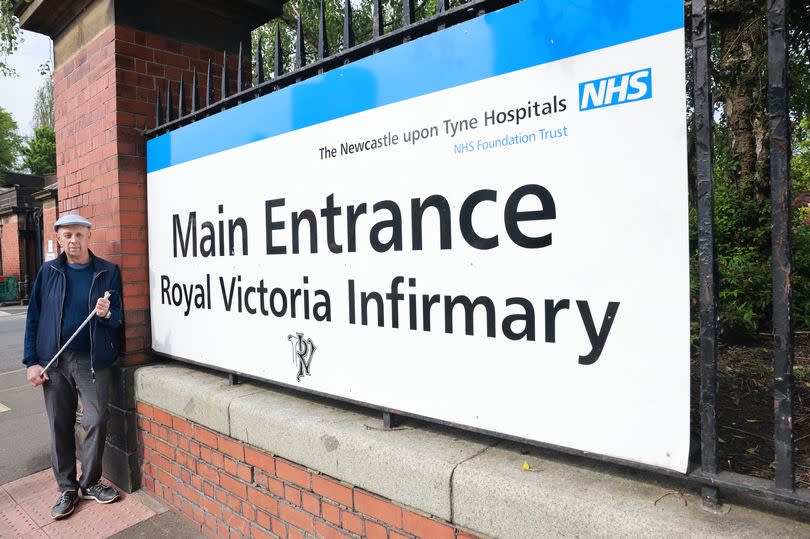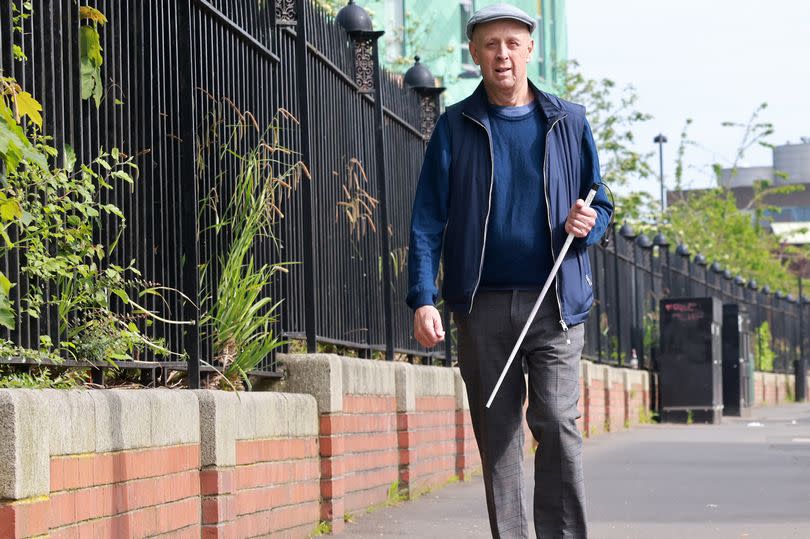Blind campaigner slams 'seven years of discrimination' by Newcastle NHS Trust

A blind campaigner has spent more than half a decade pushing for a North East hospital trust to stop discriminating against him by sending him documentation he can't read.
Peter Bennetts, 68, has had four complaints upheld by the Newcastle Hospitals NHS Trust as he fights for vital letters to be sent to him in a simple email format - but even the letters upholding those complaints have been sent in a way he cannot access.
Peter is a longstanding campaigner who played a role in the creation of the NHS Accessible Information Standard (AIS), which is something the Newcastle trust signed up to voluntarily. However, despite this and despite previously speaking out about his issues as long ago as 2018, he says he is no further forward.
He even said he had been left stunned when a member of staff at the trust described his complaints as "boring" during a meeting. However, despite this Peter remains committed to working constructively to improve things - and said he had been encouraged by the "new regime" at the trust, in place since the beginning of 2024 following a shocking Care Quality Commission report.
But, he said that he felt the discrimination he had first reported back in 2018 continued, and that there were "systemic failings" when it came to meeting a vital standard. Peter said that this was in contrast to other NHS organisations - including at the South Tyneside and Sunderland NHS Trust where he has played a role in creating training materials and videos to improve AIS compliance.

Peter told ChronicleLive: "I have had seven years of this discrimination. It's seven years since the NHS adopted the Accessible Information Standard so it's seven years that they have had to communicate with people through their preferred method."
Peter spoke of how he had been involved in the formulation of the AIS, and had sat in focus groups about its implementation. The AIS was adopted in 2016 and defines a "specific, consistent approach to identifying, recording, flagging, sharing and meeting individuals information and communication support needs by NHS and adult social care service providers".
Information should be communicated, the AIS says, in a way so that someone is not put "at a substantial disadvantage" when compared to someone who is not disabled. Peter said back in 2018 how it was "humiliating" to have to ask others to read out vital health documentation to him.
At the time he had made his first complaint - but despite it being upheld, he has not seen progress in the intervening years.
He said: "At the end of 2021 they were still doing it. Still communicating with me in method I could not read. So I submitted a further complaint which was upheld. And I also reached out to work with them constructively, sitting on the patient experience committee.
"My reasoning has always been to help to bring about positive change. We are talking seven years now, it's an ongoing, systemic failing."
Peter, who now lives in Newcastle, said that he wanted to see NHS organisations in our region lead the way when it comes to compliance and accessibility. He said he was pleased to stand up for his rights - and those of others in similar positions. He continues to meet with the Newcastle NHS Trust and said he had more confidence in the trust's new management than previously.
In a statement, a trust spokesperson added: "We regret that we’ve not been able to support Mr Bennetts in the way that he would like. We are working hard to resolve this, so that he can reliably receive correspondence in a format of his choosing.
"We are very grateful that he has offered to continue to work with us, to not only improve his care but also the experiences of others. We are, naturally, very sorry that this has happened and can fully appreciate his frustration.’"

 Yahoo News
Yahoo News 
